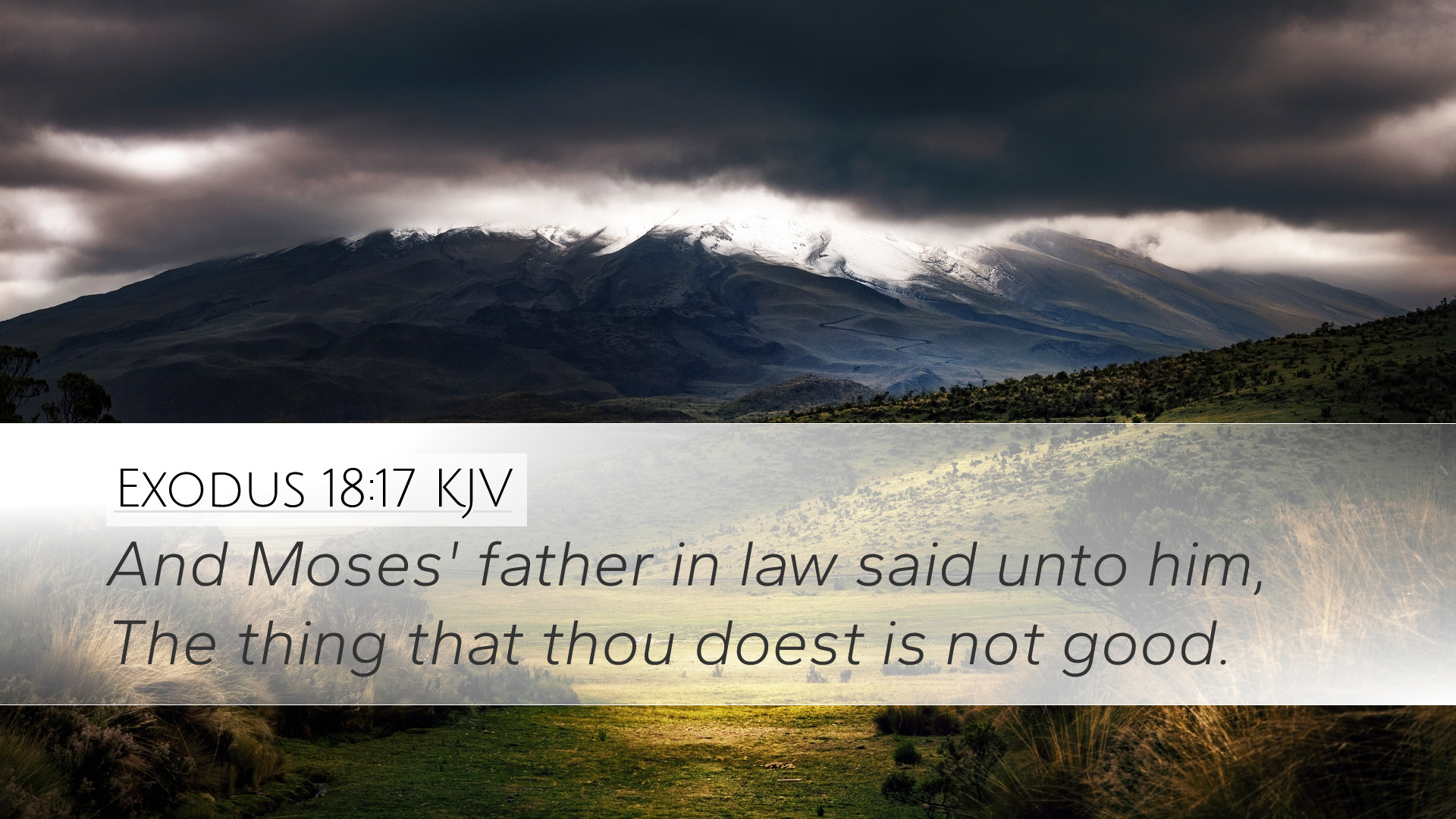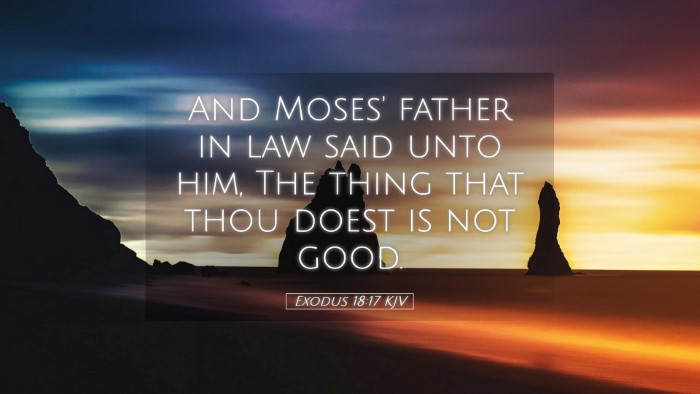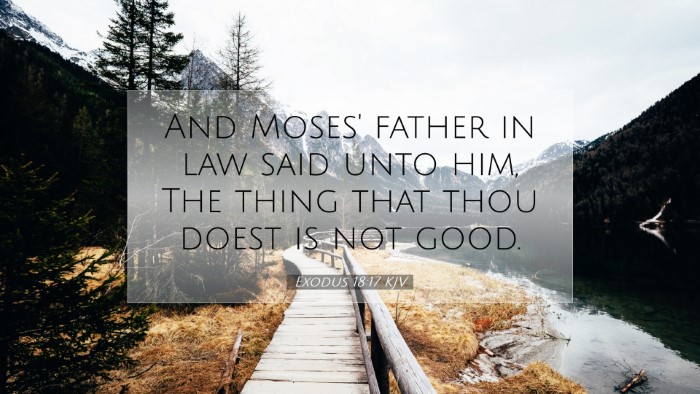Commentary on Exodus 18:17
Exodus 18:17 states: "And Moses' father-in-law said unto him, The thing that thou doest is not good." This verse serves as a critical turning point in the narrative of Moses’ leadership and offers rich material for theological reflection and practical application.
Contextual Analysis
Moses, having led the Israelites out of Egypt, was overwhelmed with the responsibility of governing and guiding a vast number of people. His father-in-law, Jethro, observing Moses’ burdensome tasks, intervenes with wise counsel.
Jethro's Role
Jethro, being a Midianite priest and Moses’ father-in-law, serves as an outsider perspective, which is significant. His advice embodies the universal wisdom applicable to leadership:
- Jethro's concern for Moses’ well-being.
- His understanding of the practical limitations of one person in a leadership role.
- A hint towards a decentralized approach to governance.
Theological Insights
The centrality of this verse lies in its exploration of leadership dynamics and community organization.
Leadership and Humility
Jethro's admonition highlights the importance of humility in leadership. Moses, a figure of immense authority, is reminded that it is acceptable to seek counsel and share responsibilities.
- Moses' willingness to listen demonstrates a virtuous leader’s characteristics.
- By accepting feedback, Moses sets an example of servant leadership.
Efficiency in Governance
Furthermore, Jethro emphasizes the importance of effective management. His advice leads to the establishment of a hierarchical system that disperses authority while ensuring accountability and oversight.
Practical Applications
This verse encourages modern church leaders and Christian organizations to consider:
- The necessity of a support system around them.
- The importance of delegation to avoid burnout.
- Establishing a culture of open communication and feedback.
Insights from Public Domain Commentaries
Matthew Henry’s Commentary
Matthew Henry expounded on the importance of wise counsel in spiritual leadership. He noted that Jethro’s advice was not only beneficial for Moses but necessary for the nation as a whole. Henry points out:
- “One man cannot do the work of many and expect to thrive, spiritually and emotionally.”
- This reflects the broader principle of the body of Christ where each member plays a vital role.
Albert Barnes’ Commentary
Albert Barnes emphasized the implication of Jethro’s warning, arguing that Moses’ method of leadership was unsustainable. Barnes posited that:
- “Leadership demands the implementation of shared responsibilities for efficiency.”
- This exemplary approach enhances community cohesion and encourages participatory governance.
Adam Clarke’s Commentary
Adam Clarke added depth by exploring the cultural implications of Jethro’s advice. He highlighted that:
- Jethro’s position as a priest provides an intriguing perspective on divine order in community dynamics.
- His intervention showcases a transition in leadership styles, potentially foreshadowing later shared leadership models in Israel's history.
Conclusion
Exodus 18:17 serves as an essential teaching on leadership and governance within a faith context. The insights gleaned from the commended figures of Jethro, Moses, and the reflections provided by noted commentators illuminate the invaluable nature of guidance, delegation, and humility. The pastoral and theological principles derived from this text continue to resonate and inform contemporary leadership practices across the global church.


